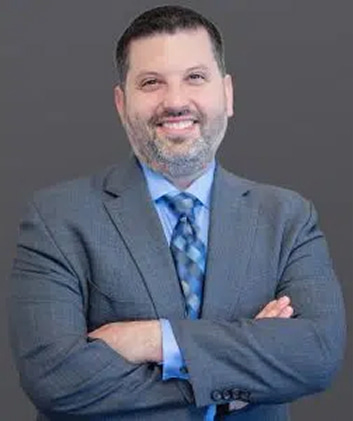 A living will speaks for you when you can no longer. But it doesn’t activate the moment you sign it, and it does not apply to every health crisis. Knowing exactly when a living will applies can bring clarity during emotional medical decisions.
In Florida, a living will only takes effect when it meets strict legal and medical conditions. These safeguards ensure your wishes are respected, but only in the specific circumstances you’ve planned for.
A living will speaks for you when you can no longer. But it doesn’t activate the moment you sign it, and it does not apply to every health crisis. Knowing exactly when a living will applies can bring clarity during emotional medical decisions.
In Florida, a living will only takes effect when it meets strict legal and medical conditions. These safeguards ensure your wishes are respected, but only in the specific circumstances you’ve planned for.
The Legal Definition Of A Living Will In Florida
A living will is a written declaration stating whether you want life-prolonging medical procedures continued, withheld, or withdrawn if you’re unable to express those wishes yourself.Situations When Florida Statutes Chapter 765 Applies
- You are incapacitated.
- You are diagnosed with a terminal condition, end-stage condition, or persistent vegetative state.
- Two physicians agree on your medical condition and inability to decide for yourself.
Florida Statute § 765.304(1)
A living will becomes operative when “the principal has a terminal condition, has an end-stage condition, or is in a persistent vegetative state; and has been determined by the attending physician and by another consulting physician to be incapacitated.” The law is clear: not every medical crisis triggers your living will. It’s for very specific and extreme conditions.Condition #1: You Must Be Incapacitated
The first requirement is that you cannot communicate or make decisions for yourself. It includes loss of consciousness, cognitive incapacity (e.g., advanced dementia), and inability to understand or express your medical choices.Who Decides?
Your attending physician makes the first call about your ability to make medical decisions. Then, a second independent physician must confirm you’re incapacitated before your living will takes effect.Why It Matters
Your living will does not override your voice. As long as you can speak, write, or nod with comprehension, you remain in control, even if you’re gravely ill. In Boca Raton hospitals, incapacity must be documented before any living will is applied.Condition #2: One Of Three Medical Diagnoses Must Be Present
Even if you’re incapacitated, your living will only takes effect if doctors diagnose you with one of these three conditions.Terminal Condition
A terminal condition is an illness or injury that, even with treatment, will result in death soon. Examples: • Advanced cancer with widespread metastasis. • End-stage heart failure with no surgical options. • Irreversible multi-organ failure. Florida Law Says: The condition must be “incurable” and “expected to cause death regardless of treatment.”End-Stage Condition
An end-stage condition is a progressive illness that has reached a point where treatment is futile and death is imminent. Examples: • Severe Alzheimer’s disease where the patient is nonverbal, immobile, and no longer eating. • ALS (Lou Gehrig’s disease) with total loss of motor control. • Late-stage Parkinson’s or Huntington’s disease with irreversible decline.Persistent Vegetative State (PVS)
A PVS occurs when brain activity is severely diminished, and the patient is awake but unaware, with no potential for recovery. Key Characteristics: • No conscious awareness of self or surroundings. • No purposeful responses. • Only basic reflexes or automatic movements. Important Distinction: Being in a coma or temporarily unresponsive does not automatically mean PVS. A vegetative state must be medically confirmed as ongoing and irreversible. Florida physicians in Palm Beach County are trained to use these definitions carefully and must certify them in writing before applying a living will.Physicians’ Role In Activating A Living Will
Under Florida law, your living will doesn’t activate automatically. Your attending physician must first determine that you’re unable to make or communicate health care decisions, a legal condition known as incapacity. Then, a second independent doctor must confirm that diagnosis and certify you meet one of three qualifying conditions: a terminal illness, an end-stage condition, or a persistent vegetative state. Only then does your directive apply.Steps Include
- Full medical evaluation and history review.
- Imaging or neurological assessments if needed.
- Written confirmation and documentation of incapacity and condition.
What Doctors Cannot Do
Doctors in Florida cannot activate your living will based solely on one opinion; a second physician must confirm. They also cannot override your chosen surrogate’s decisions if your instructions are unclear. Your living will protects your autonomy, but medical judgment governs when you can use it.What Happens When A Living Will Takes Effect?
Once a valid living will is triggered under Florida law, your healthcare providers and surrogate must follow its instructions.It May Include
Your living will can authorize doctors to withdraw life-prolonging procedures like ventilators, CPR, or dialysis when recovery is unlikely. It can also stop artificial feeding and hydration under certain conditions. Even with life-sustaining treatments removed, your document can direct medical staff to continue comfort care. This may include palliative medications to ease pain or anxiety as part of your end-of-life plan.Your Living Will Can Specify
You can include preferences for pain relief, even if such treatment may unintentionally hasten death. This helps your surrogate and care team honor your values and comfort-based priorities. Your directive may also address organ donation or how your tissues can be used, as well as outline any religious or spiritual beliefs you want respected during end-of-life care.If No Living Will Exists
Your surrogate, or court-appointed guardian, will decide based on what they believe you would have wanted. Activating a living will does not mean giving up; it means honoring your values in your final days.What If There Is A Dispute About The Diagnosis Or Intent?
Sometimes, family members or even healthcare providers may question whether a living will should apply.Florida Law Provides Remedies
- Consulting the hospital’s ethics committee.
- A probate court can review the dispute.
- A court can issue emergency orders to enforce, pause, or make end-of-life decisions.
Tips To Prevent Disputes
- Be specific in your living will.
- Name a health care surrogate you trust.
- Discuss your wishes openly with family before a crisis.
Real-Life Scenario For A Boca Raton Family
Marianne, an 82-year-old resident of Boca Raton, was diagnosed with advanced Parkinson’s and dementia. She had signed a living will years earlier. It states that she did not want life support if she could no longer speak or eat independently. When she was admitted to a local Palm Beach County hospital after a massive stroke, doctors determined she had no chance of regaining consciousness. Since her living will was clearly written, properly signed with witnesses, and on file with her doctor, her children had no conflict or legal delay. Care was transitioned to comfort-only measures, just as she wished. Proper planning gave her family peace and protected her dignity.Common Questions About Living Wills
Understanding when a living will takes effect can be complex. These answers clarify how Florida law works and what Boca Raton families can expect in real medical situations.
Can My Living Will Be Used If I’m In A Temporary Coma?
No. Florida law requires confirmation that your condition is permanent and meets one of the three criteria. Short-term unconsciousness does not activate a living will.
What If I’m Just Old Or Very Sick, But Not Diagnosed As Terminal?
Your living will does not apply unless doctors certify a qualifying medical condition under Chapter 765.
Who Decides If I’m In A Vegetative State?
Your attending physician and a second doctor must both confirm and document this finding.
Can My Family Override My Living Will?
No. If your living will is legally valid and your condition meets the criteria, doctors must follow it, unless a court intervenes.
What If I Change My Mind Later?
You can revoke or revise your living will at any time, as long as you’re still mentally competent. Even in moments of crisis, clarity can bring comfort.

Having answers now ensures your loved ones feel informed and empowered when honoring your living will. Clear answers to hard questions give families strength when they need it most.
Let Us Assist You In Creating A Valid Living Will
Knowing when a living will takes effect is just as important as creating one. If your document isn’t clear or doesn’t meet Florida’s legal standards, it may not protect you when it matters most.
At Boca Raton Probate Attorneys, we help families across Palm Beach County draft and review living wills. These truly reflect their values and stand up under legal scrutiny.
See us today and let us help you create an end-of-life plan that gives your family clarity and comfort, not confusion and conflict.




